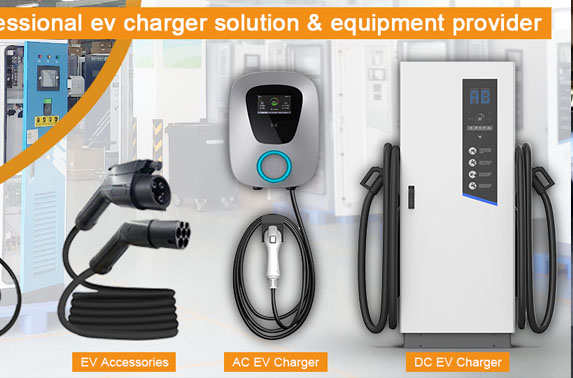
Products
Fast, Reliable, Everywhere

Solutions
Efficient, Innovative EV Charging Solutions.
News
We are committed to the innovation and application of EV charging.
Understanding EV DC Charger Types: Slow, Fast, Rapid & Ultra-Fast Charging Speeds
As electric vehicles (EVs) dominate roads globally, understanding EV charging speed and types of EV chargers becomes critical. From home charging to ultra-fast public stations, this guide breaks down Level 1 vs Level 2 vs Level 3 charging and answers: How fast does a DC fast charger charge?

Electric utilities, automakers, and energy giants are rapidly expanding EV charging infrastructure to support diverse needs:
This shift transforms every parking lot into a potential "filling station" through slow AC, fast DC charging, rapid, and ultra-fast charging solutions.
EV Charging Levels Explained
Level 1 Charging (Slow AC)
Voltage: 110-120V
Speed: 2-6.5 miles of range per hour
Use Case: Overnight home charging via standard outlets. Ideal for low-mileage drivers.
Level 2 Charging (Fast AC)
Voltage: 208-240V
Speed: Up to 80 miles/hour
Use Case: Workplace/public stations. 10x faster than Level 1.
Level 3 Charging (DC Fast Charging)
Voltage: 400-900V
Speed: 120-1,200 miles/hour
Key Fact: Charges to 80% in 30 minutes (varies by battery state and temperature).
Connectors: CCS (most common), Tesla Supercharger (with adapter), CHAdeMO (Nissan/Toyota).
DC Fast Charging Speed: What Affects It?
When asking "How fast does a DC fast charger charge?" consider these factors:
1.Battery State of Charge (SOC): Lower SOC = faster initial charging.
2.Temperature: Extreme cold/heat slows charging.
3.Vehicle Acceptance Rate: Max kW your EV can handle (e.g., 150kW vs 350kW stations).
4.Charger Capacity: Ultra-fast 400kW stations vs standard 50kW units.
Types of DC Chargers Compared
Type Voltage Range Charging Speed Use Case
DC Fast Charger 400-900V 80-150kW Highway rest stops
Rapid Charger 400-900V 150-250kW Urban hubs (15 mins = 200km)
Ultra-Fast Charger 250-400kW Future-proof stations (400km/15 mins)
| Type | Voltage Rang | Charging Speed | Use Case |
| DC Fast Charger | 400-900V | 80-150kW | Highway rest stops |
| Rapid Charger | 400-900V | 150-250kW | Urban hubs (15 mins = 200km) |
| Ultra-Fast Charger | 800-900V | 250-400kW | Future-proof stations (400km/15 mins) |
No. Compatibility depends on:
Connector Type: CCS (modern EVs) vs CHAdeMO (older models).
Max Charging Rate: A 22kW-capable EV won’t benefit from a 350kW station.
FAQs: EV Charging Speed & Costs
Is fast charging more expensive?
Yes. DC fast charging costs 20-50% more than Level 2 due to infrastructure demands.
Does fast charging damage EV batteries?
Modern EVs have safeguards to prevent damage. However, frequent ultra-fast charging may slightly accelerate long-term degradation.
Conclusion: How DC Fast Charging Works
Unlike AC chargers, DC fast charging stations bypass the car’s converter, directly injecting DC power into the battery. This allows:
For home charging tips, read our Guide to EV Home Charger Installation.
Data Source: